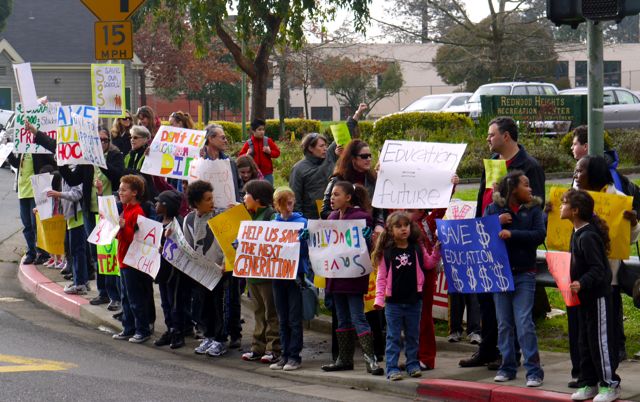The Big Error of School Accountability

With the debate over testing roiling Congress and state capitals nationwide, it is important to recognize the damage done to American pedagogy by high-stakes testing and the deleterious effects of punitive accountability on the students who depend on public schools.
In their slick apologia for high stakes testing and punitive accountability, both of which have dominated American education politics and pedagogy since the 1980s, Bill McKenzie and Sandy Kress start out on the high road. McKenzie is a high-ranking opinion-shaper at the George W. Bush Institute and a former editorialist for the Dallas Morning News. Kress was an architect of Bush’s No Child Left Behind Act of 2001 and, though he leaves this out of his bio attached to the essay, a long-time lobbyist for Pearson, the world’s leading vendor of K-12 standardized tests. The two edu-lobbyists begin their essay by mentioning historical moments in education policymaking and politics that would seem to appeal to a wide audience. They condemn segregation and celebrate Brown v. Board of Education. They praise the Elementary and Secondary School Act of 1965 (later renamed ESEA) and they celebrate its noble intention that “schools in disadvantaged communities would receive the resources to provide their students a decent education.”
Pay close attention to that statement, because it is the last time the authors will refer to resources as a necessary element to ensuring quality education in disadvantaged communities. Through the sleight of hand that has been perfected by the modern education reformer—and McKenzie and Kress are education reformers of the highest order—the writers deftly pivot from any and all talk of the need to provide equitable educational resources across all communities so that schools in even the poorest areas can deliver on the promise of education, and they spend the remaining pages of their article discussing something much easier on the taxpayer’s pocketbook: accountability, or the careful creation of just the right punishments to make teachers and students succeed in making learning happen, without respect to the pesky details of The Big Error of School Accountability - Living in Dialogue:
